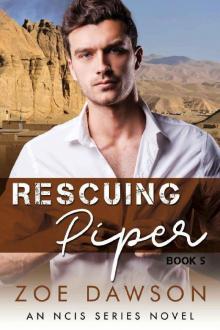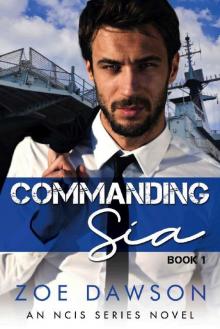 Leashed
Leashed Hemingway (SEAL Team Alpha Book 11)
Hemingway (SEAL Team Alpha Book 11) Guarding Sky (NCIS Series Book 2)
Guarding Sky (NCIS Series Book 2) Pitbull (SEAL Team Alpha Book 10)
Pitbull (SEAL Team Alpha Book 10) Fast Lane (SEAL Team Alpha Book 16)
Fast Lane (SEAL Team Alpha Book 16) Managing Emma (NCIS Series Book 7)
Managing Emma (NCIS Series Book 7) Dragon (SEAL Team Alpha Book 9)
Dragon (SEAL Team Alpha Book 9) Guiding Kinley (NCIS Series Book 3)
Guiding Kinley (NCIS Series Book 3) Rescuing Piper (NCIS Series Book 5)
Rescuing Piper (NCIS Series Book 5) Scarecrow: SEAL Team Alpha
Scarecrow: SEAL Team Alpha Commanding Sia (NCIS Series Book 1)
Commanding Sia (NCIS Series Book 1) Scarecrow
Scarecrow Protecting Jenna (NCIS Series Book 8)
Protecting Jenna (NCIS Series Book 8) Saint
Saint A Perfect Question
A Perfect Question A Perfect Mistake
A Perfect Mistake Handling Neve (NCIS Series Book 6)
Handling Neve (NCIS Series Book 6) Fetched
Fetched Ramping Up
Ramping Up A Perfect Mess
A Perfect Mess 2-Stroke (SEAL Team Alpha Book 14)
2-Stroke (SEAL Team Alpha Book 14) Mad Max (SEAL Team Alpha Book 12)
Mad Max (SEAL Team Alpha Book 12) Kid Chaos (SEAL Team Alpha Book 2)
Kid Chaos (SEAL Team Alpha Book 2) Ruckus (SEAL Team Alpha Book 1)
Ruckus (SEAL Team Alpha Book 1) A Perfect Wedding
A Perfect Wedding Blue_SEAL Team Alpha
Blue_SEAL Team Alpha Leashed (Going to the Dogs)
Leashed (Going to the Dogs) Finally Again
Finally Again Tank
Tank Tank (SEAL Team Alpha Book 4)
Tank (SEAL Team Alpha Book 4) Leaving Yesterday
Leaving Yesterday A Perfect Dilemma
A Perfect Dilemma Mark Me
Mark Me Cowboy (SEAL Team Alpha Book 3)
Cowboy (SEAL Team Alpha Book 3) Playing Rough
Playing Rough Resisting Samantha (Hope Parish Novels Book 10)
Resisting Samantha (Hope Parish Novels Book 10)